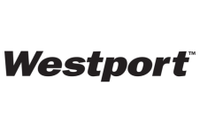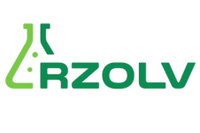New Flyer Industries Canada is part of an innovative bus trial project set to take place in three communities across Canada.
New Flyer Industries Canada (TSX:NFI) congratulated the Canadian Urban Transit Research and Innovation Consortium (CUTRIC) in a press release on Thursday (April 12) on the successful launch of its multi-manufacturer interoperability demonstration.
The trials are part of CUTRIC’s Pan-Canadian Electric Bus Demonstration and Integration project.
The project involves on-route high-powered charging stations integrating with local utility systems, making Canada the world’s first to demonstrate on interoperable electric bus trials.
It will span across three communities in Canada, with Vancouver trials starting in 2019. The other two areas are Brampton and the York Region. They will host their own launch events on April 16.
“As a long-time innovator in public transportation and North America’s only manufacturer of all four electric bus propulsions, it was important that New Flyer become an active contributor and supporter of CUTRIC’s demonstration project,” said Jennifer McNeill, vice president, sales and business development, with New Flyer and a current board member for CUTRIC.
“We are proud to participate in this project, not only to highlight Canadian intellectual property in motion but to also realize collaborative creation of industry standards, as well as measurable emission reduction in communities across Canada,” she added.
According to TransLink, both New Flyer and Nova Bus will manufacture two electric buses that will be tested on Route 100. At each terminus station, a high-powered charging station will be placed; they will be capable of delivering rapid charges in four to seven minutes. The charging stations will be powered by ASEA Brown Boveri and Siemens Canada.
“The electric bus trial is a significant step for Metro Vancouver, especially as gas and diesel vehicles are the top contributors to greenhouse gas emissions in our region,” said Greg Moore, chair of Metro Vancouver.
“These are the viable alternatives we are looking at as we develop our Climate 2050 Strategy, which aims to reduce regional greenhouse gas emissions and prepare for the impacts of climate change, and our ongoing initiatives to reduce harmful emissions of diesel particulate matter,” he noted.
The project involving New Flyer is expected to reduce direct CO2 emissions by up to 101,867 TCO2E over the lifecycle of the vehicles deployed across the country.
TransLink has partnered with Natural Resources Canada, and Metro Vancouver and will share the data it collects with BC Hydro.
“This partnership is a great example of organizations working together to help people get to where they are going by using the clean technology of tomorrow,” commented Bowinn Ma, parliamentary secretary for TransLink.
“It means British Columbians can get to work, access the services they depend on and get home to their families quickly and efficiently — with even lower carbon emissions than regular transit. I am excited to see the outcome of this electric bus trial.”
New Flyer’s share price closed Thursday at $57.59, a 0.86-percent increase, with the stock touching a day high of $58.08. The stock opened at $57.20 and saw a day low of $56.90. According to TipRanks, the company has a strong “buy” rating with analyst target of $68.40.
Don’t forget to follow us @INN_Technology for real-time news updates.
Securities Disclosure: I, Bala Yogesh, hold no direct investment interest in any company mentioned in this article.



